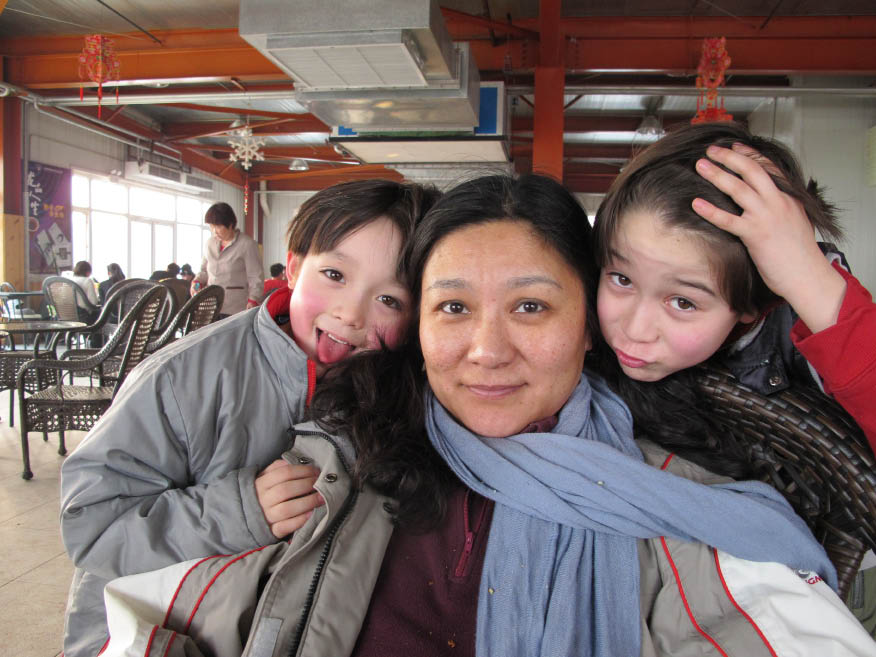| French Impressions of New China
By staff reporter LI YUAN
IT was in 2007 that Didi Zhang decided that her sons – five-year-old Zhuoyang and three-year-old Zhuo’ai – should receive their basic education in China. Joseph, her French husband and the boys’ father, joined them in Beijing three months after Didi had settled in the capital.
 |
| Didi and her two sons. |
Better Than Expected
China has always held fascination for Joseph. He found all his mainland classmates at university to be very hardworking, and one of his best friends while studying was from Hong Kong. He also attributes his instant and lasting attraction to his wife Didi to her Chinese origins. Joseph is well versed in Chinese history, with broad knowledge of China’s dynasties, the Silk Road and its heyday, and the vagaries of the Opium Wars.
Joseph was nonetheless daunted at the prospect of living full-time in China. His misgivings were mainly due to opinions he had read in the media about the absence of freedom of speech and of religious belief in contemporary China, and also of reports of widespread poverty and a backward state of development. When Joseph left Europe to join his wife and sons, therefore, he was prepared for the worst.
On arriving in Beijing, with its wide roads filled with bustling traffic, sophisticated residents and supermarkets brimming with diverse fashions and products, including French wines and cheeses, innumerable and affordable restaurants, and excellent and diverse cuisines, Joseph’s preconceived ideas evaporated. It seemed to him that China had created a miracle.
A ski accident brought Joseph in touch with China’s healthcare services. Being efficiently anesthetized and operated upon by Chinese physicians speaking fluent English at a public hospital made him realize that life in Beijing is no less convenient than in the U.S. or Europe.
Didi recalls that it was only after they had begun attending Nan Tang (South Cathedral) in Xuanwumen each Sunday that Joseph’s last misapprehensions were laid to rest. Relieved at finding he was free to pursue his religious beliefs, he went to the English Mass every weekend. Impressed by the organized and extensive contacts among international communities, Joseph finally decided to settle in Beijing.
Pluses and Minuses of Chinese Education
Didi and Joseph’s elder son Zhuoyang started Chinese public elementary school in 2008 after turning six. At that time he knew no Chinese at all.
“As at first he couldn’t understand Chinese, he tried especially hard in class and the teacher gave him help when he needed it,” Didi said. One year later, Zhuoyang was communicating with his Chinese classmates with ease.
Now in his third grade, Zhuoyang has proved a model student and excels at writing. He has won several inter-scholar competitions in Beijing.
“Chinese is difficult for Westerners. I used to speak nine languages, but my sons, who teach me Chinese, tell me I don’t speak it well. I’m not confident I can conquer this tenth language,” Joseph said. “This is one of the reasons why Didi and I decided that the boys should study in China. We both believe that if they can master the world’s three main languages – English, French and Chinese – the world will be at their feet.”
| 